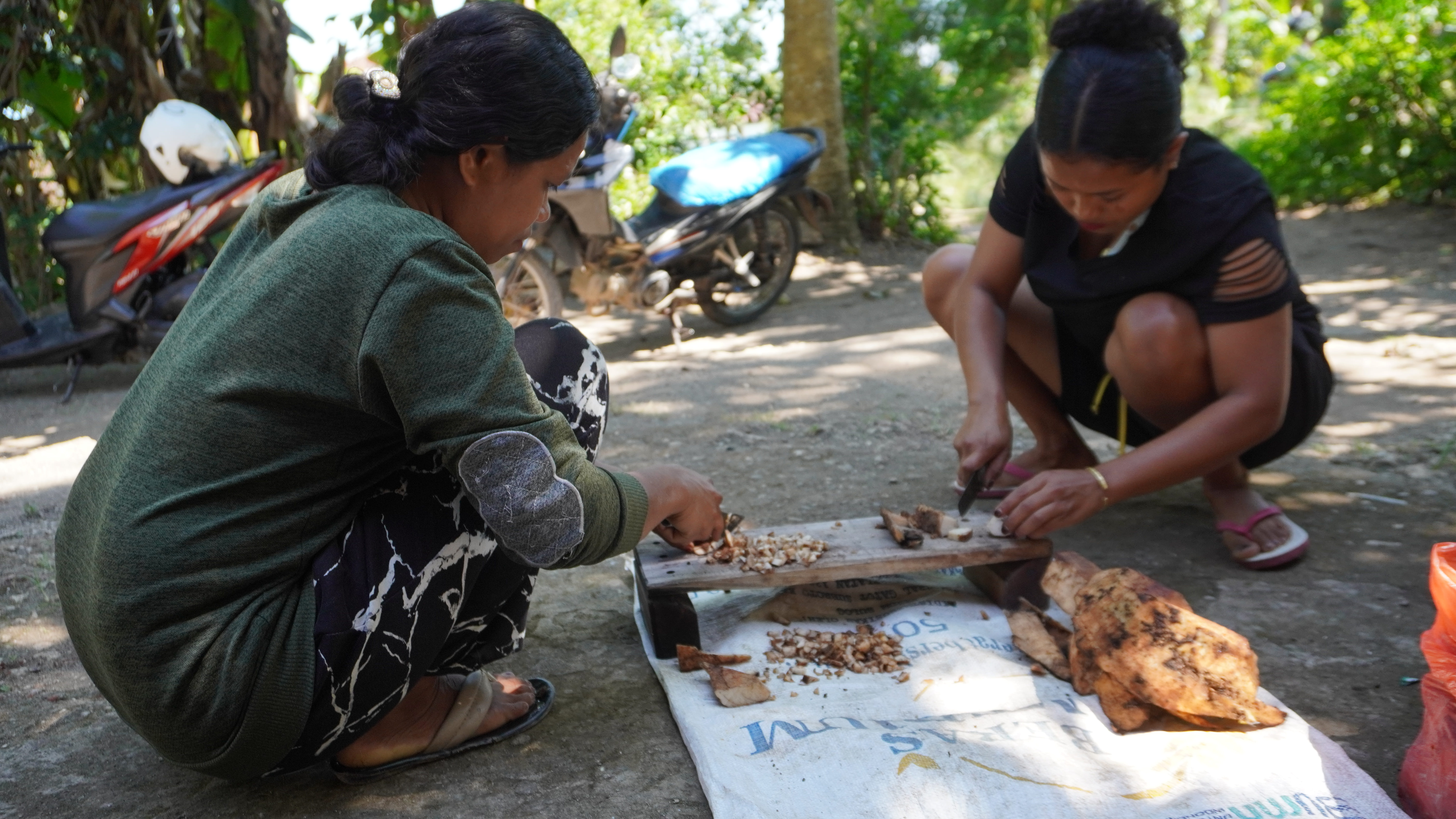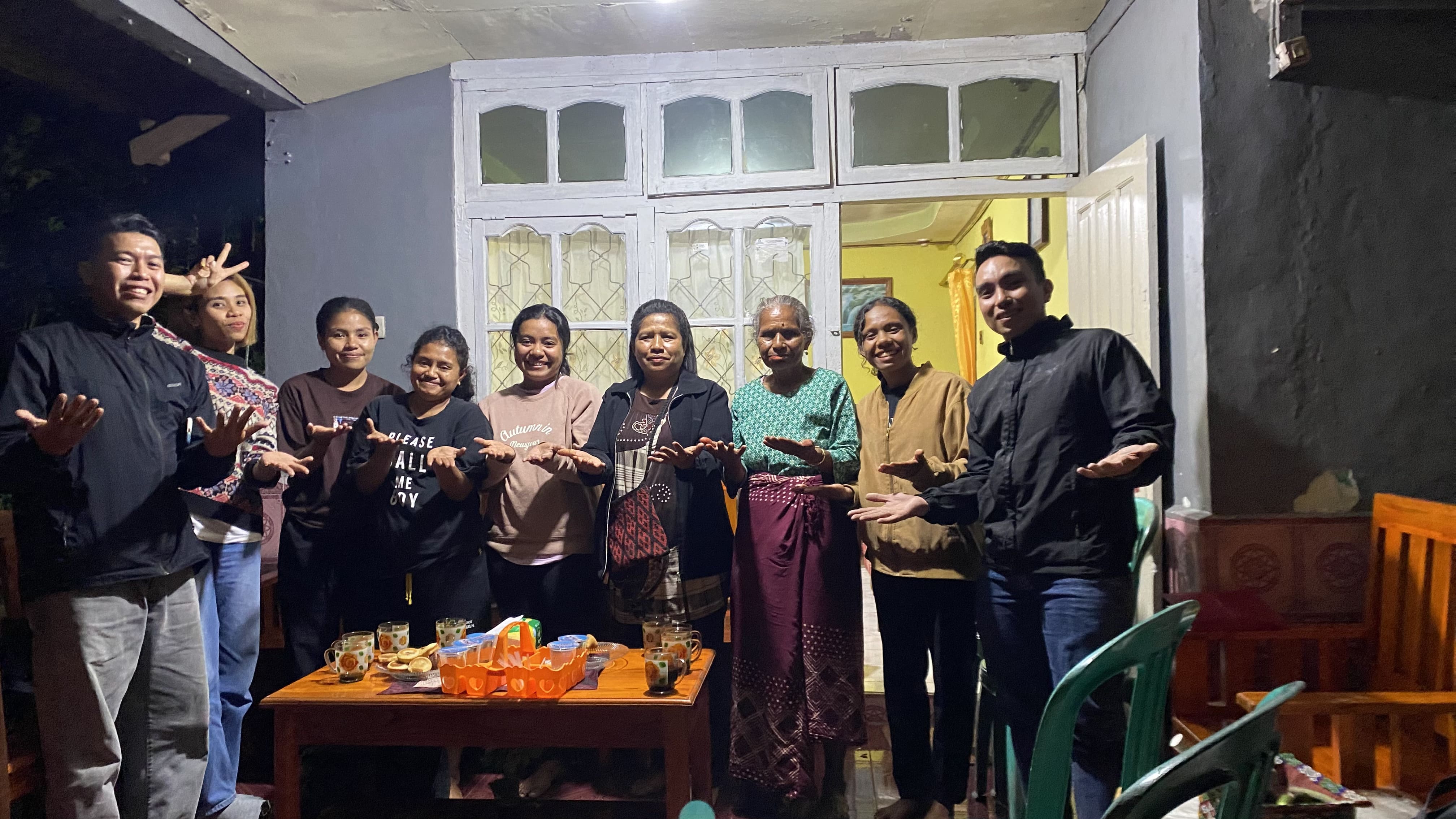
The process of making liquid organic fertilizer (LOF) begins with Kaka Deby and Mama Vero cutting banana stems into small pieces.
The earthquake that struck Kuatae Village in South Central Timor Regency last March drastically altered the landscape of an area once known for its abundant water sources and fertile land. The damage was so severe that some parts of the village could no longer be rebuilt, forcing residents to relocate to a new settlement.
This change was a heavy blow for the people living at the heart of the disaster zone, including a young farmer named Kaka Deby and his mother, Mama Vero, a respected farmer group leader, teacher and local entrepreneur. Together with other farmers, they have transformed the new farmland into a space for learning and adaptation—despite the uncertainty that lies ahead.
Before the earthquake, Kaka Deby had already been practicing organic farming. He noticed a clear difference in the harvest: vegetables grown without chemical fertilizers were fresher, greener, crisper, and even sweeter unlike those treated with chemicals, which tended to taste bitter and have a rough texture. Moreover, organically managed soil recovered more quickly and could be replanted sooner without the need for chemical additives.
This experience inspired Kaka Deby and Mama Vero to share their knowledge with other farmers. Initially, the sessions were supposed to feature speakers from neighboring villages. However, thanks to their expertise and hands-on experience, both were entrusted to lead the sessions themselves, teaching fellow farmers and community members eager to learn new ways to cultivate sustainably.

The Kopernik team together with the farmers of Kuatae, at the home of Mama Vero and Kaka Deby, which is currently serving as a gathering point for farmers affected by the disaster.
On the new farmland, the biggest challenge lies in the limited access to clean water and an environment that has yet to fully support farming. To address this, the farmers began using liquid organic fertilizer (LOF). By mixing one glass of the fertilizer with two liters of water and applying it to their crops three times a week, they were able to increase both the quantity and quality of their produce, enrich the soil, and accelerate plant growth. This simple innovation emerged from a long and patient learning process.
For Mama Vero, leadership means openness and integrity. “A leader must be transparent, clean, and organized. Be honest when it comes to money. Don’t be stingy, don’t be lazy, and don’t deceive others,” she emphasized. These principles have guided the farmers’ group since 1997 and remain deeply relevant as they navigate post-disaster recovery.
The hardships faced by the people of Kuatae Village, including Mama Vero and Kaka Deby, have become a new source of strength. With ancestral knowledge of traditional farming and a strong spirit of adaptation, they continue to rebuild a food system that is more resilient, sustainable, and rooted in community solidarity.


